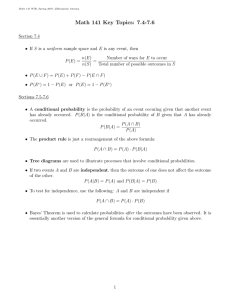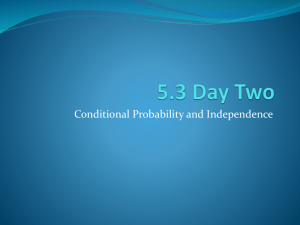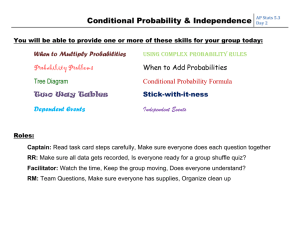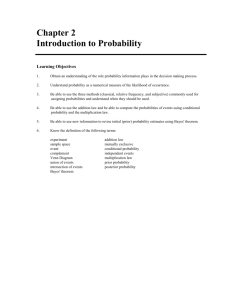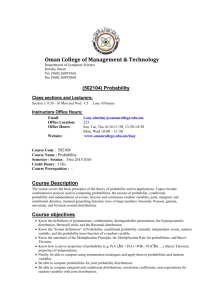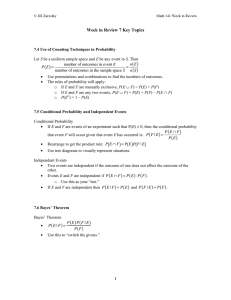1. Distributed via email are data from a... policy options available. The survey was conducted over the...
advertisement
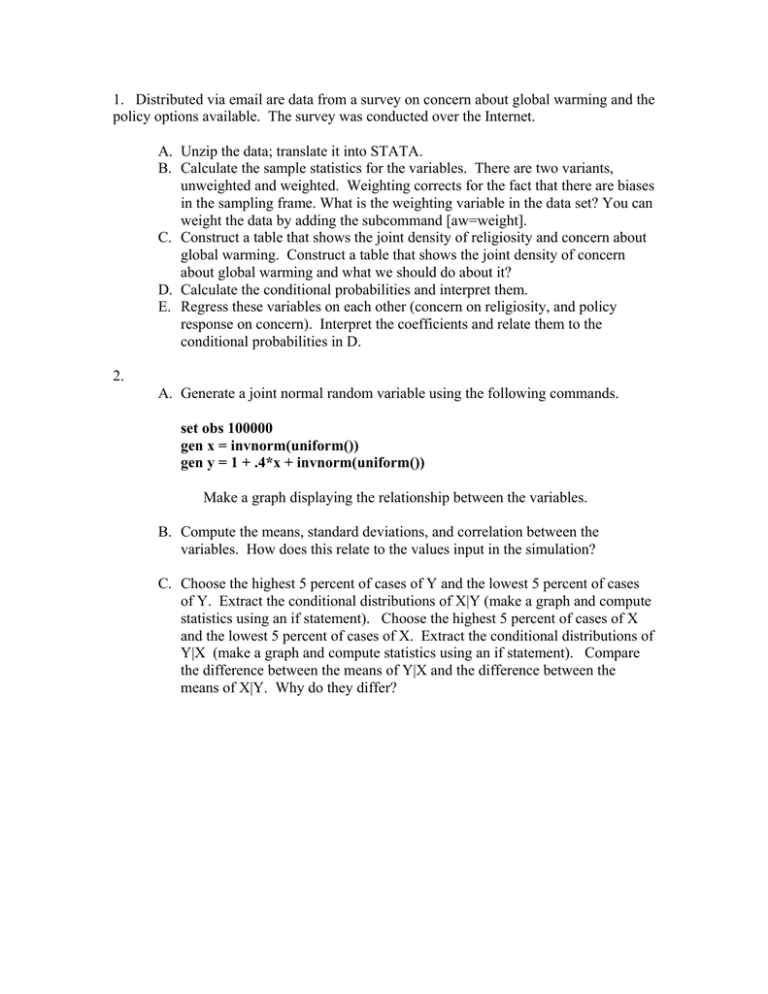
1. Distributed via email are data from a survey on concern about global warming and the policy options available. The survey was conducted over the Internet. A. Unzip the data; translate it into STATA. B. Calculate the sample statistics for the variables. There are two variants, unweighted and weighted. Weighting corrects for the fact that there are biases in the sampling frame. What is the weighting variable in the data set? You can weight the data by adding the subcommand [aw=weight]. C. Construct a table that shows the joint density of religiosity and concern about global warming. Construct a table that shows the joint density of concern about global warming and what we should do about it? D. Calculate the conditional probabilities and interpret them. E. Regress these variables on each other (concern on religiosity, and policy response on concern). Interpret the coefficients and relate them to the conditional probabilities in D. 2. A. Generate a joint normal random variable using the following commands. set obs 100000 gen x = invnorm(uniform()) gen y = 1 + .4*x + invnorm(uniform()) Make a graph displaying the relationship between the variables. B. Compute the means, standard deviations, and correlation between the variables. How does this relate to the values input in the simulation? C. Choose the highest 5 percent of cases of Y and the lowest 5 percent of cases of Y. Extract the conditional distributions of X|Y (make a graph and compute statistics using an if statement). Choose the highest 5 percent of cases of X and the lowest 5 percent of cases of X. Extract the conditional distributions of Y|X (make a graph and compute statistics using an if statement). Compare the difference between the means of Y|X and the difference between the means of X|Y. Why do they differ?
